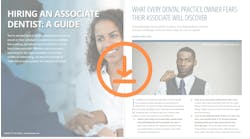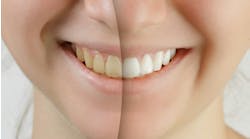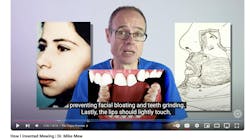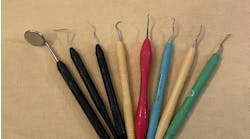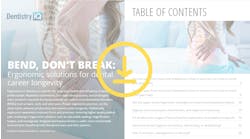One in five dentists in private practice say maintaining a dual role as dentist and business owner is "extremely challenging," and virtually all (96%) say it's extremely important for dental students to learn business skills in dental school, according to the first-ever Medical Practice Monitor by OPEN from American Express, the company's division that focuses exclusively on providing financial products and services for small business owners.
Overall, nearly half of those surveyed (49%) report spending the equivalent of at least one working day each week (defined as seven hours) managing the business of their practice, and among these 15% report that they or their partners spend the equivalent of at least three working days (21 hours) on the management of their practice. Many also cite the need to better develop their own business skills, including human resources (66%), business management (64%), marketing (63%), and investments (56%).
"Dentists are largely undeterred by the challenges of having to juggle the practice of dentistry with their role as business owners. Only one in ten say they would not have opened their own dental practice if they fully understood the business challenges of running a practice when they began their careers," said J. Max Reiboldt, CPA, dental practice management consultant and CEO of the Coker Group. "Growth is a top priority for them, and dentists appear to be focused on ways to more efficiently run their practices, especially in managing cash flow."
Managing Practices More Efficiently
Sixty-nine percent of dentists say they aspire to having more time to practice dentistry, rather than run the business. Dentists say they would spend extra time in a variety of ways including personal recreation time (74%), reading more medical literature (51%), spending more time with existing patients (50%), and increasing participation in continuing medical education or dental meetings (45%).
Dentists are looking for ways to fuel the growth of their practices. In the next six months, the most important management priorities for dentists include expanding overall productivity and patient base (68%), managing the rising cost of staffing expenses (48%), purchasing equipment (42%) and managing cash flow (32%). Eighty-eight percent also report plans to make capital investments in the next six months, including dental equipment and supplies (70%), office furnishings and equipment (49%) and computers and office systems (39%).
According to the Medical Practice Monitor by OPEN from American Express, credit and charge cards are the preferred form of payment by dentists for dental practice purchases (58% vs. 40% for check). Among dentists who prefer using credit or charge cards, most use them to purchase office supplies (100%), business travel (90%), continuing medical education and computers (tied, 86%) and dental supplies (83%). These dentists say they prefer using their credit or charge cards because they like to earn rewards (86%), the convenience of not having to pay with cash or check (64%) and the flexibility of paying over time (33%). Overall, 95% of dentists report using credit or charge cards for some dental practice purchases.
"Credit and charge cards can be an effective way for any business owner, including dentists, to help manage cash flow, and the survey found that many dentists have incorporated them in running their practices," said Susan Sobbott, president, OPEN from American Express. "Unlike cash or check, charge cards offer dentists the spending power they need to make large purchases for their medical practices, simplified online account management and the ability to earn rewards for spending on the card."
Survey Methodology
The Medical Practice Monitor by OPEN from American Express is based on online interviews conducted by Harris Interactive from September 22-October 27, 2004 with a nationally representative sample of 356 medical doctors in private practice (regardless of specialty). Additionally, 106 oncologists, 101 rheumatologists, 100 urologists and 100 dentists in private practice were surveyed. The results have a sampling error of +5% (for the sample of 356) or +10% (for the samples of 100).
